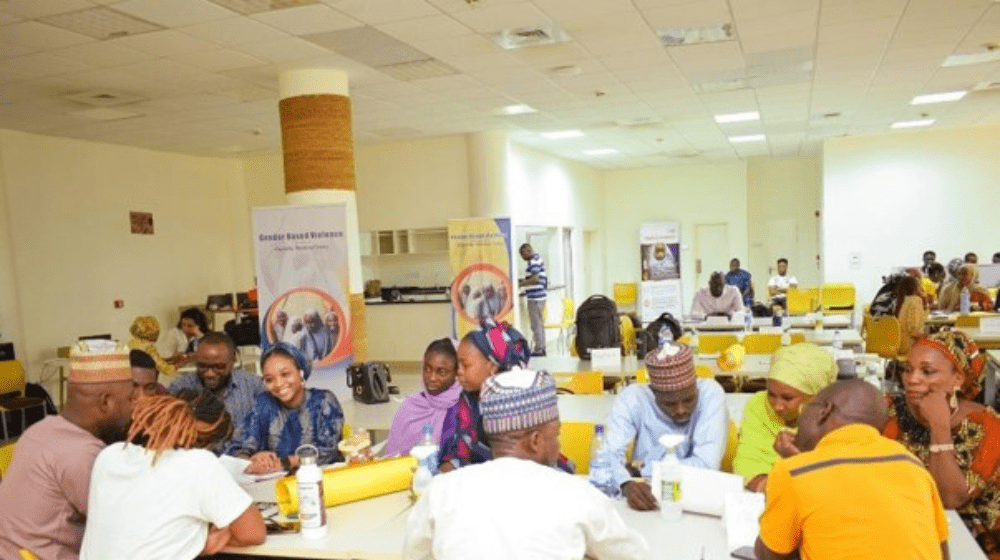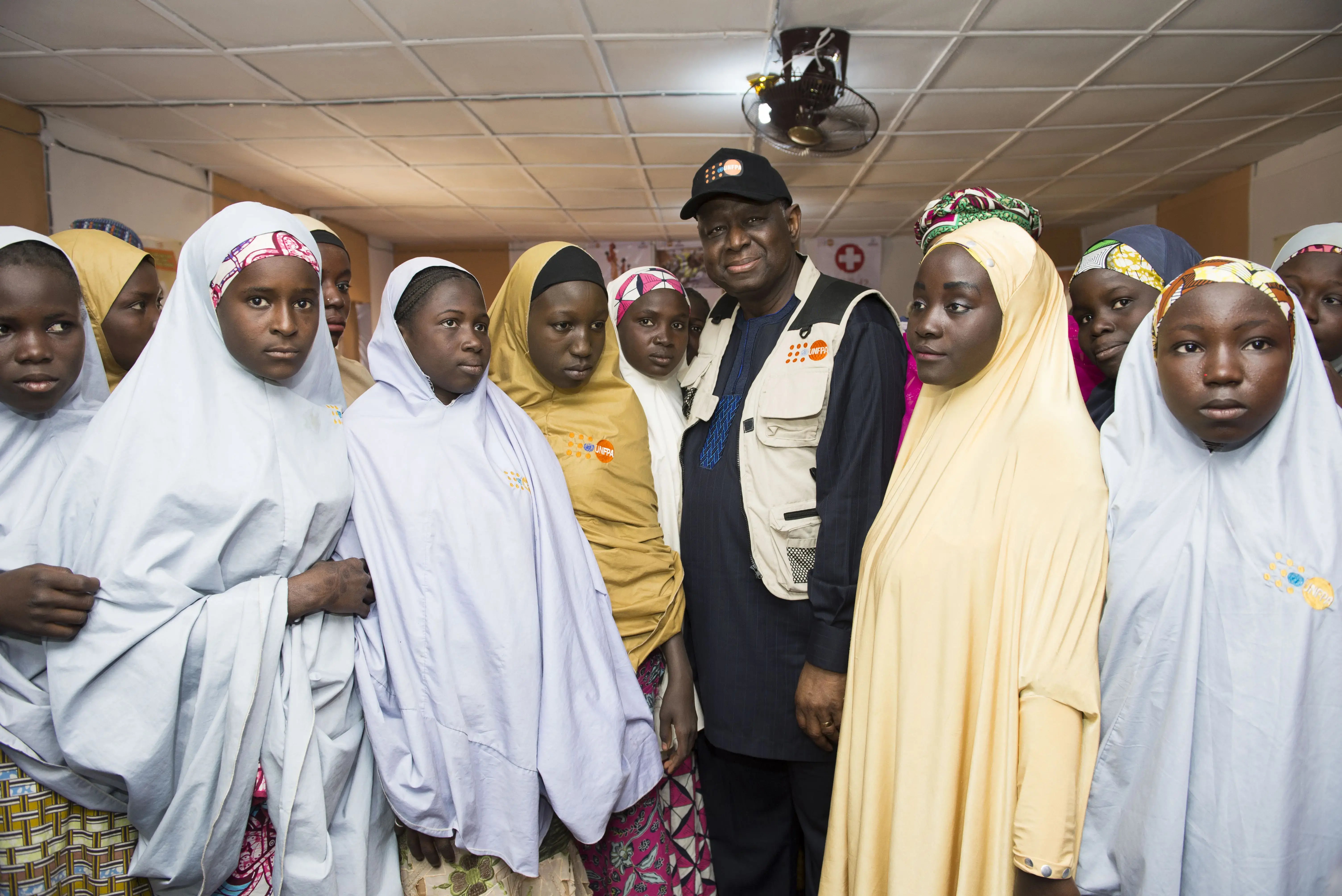The Lake Chad Basin humanitarian emergency is among the most severe in the world. Daily incident reports from the protracted conflict, which has uprooted up to 2.5 million people, highlight the increase in the perpetration of GBV, with women and children as primary targets.
The capacity to adequately address the need for quality services and, more specifically, gender-based violence (GBV) response services are demonstrated in the quality and quantity of service providers across all sectors, especially local organizations and host government agencies.
UNFPA Nigeria, through the Call to Action on Protection from Gender-Based Violence Initiative in Nigeria, established an innovative partnership with the American University of Nigeria (AUN) to develop and roll out a pilot course on GBViE in November 2019 with a total of 187 graduates from the first cohort to date. The course is and will continue to strengthen the capacity of humanitarian actors.
A 6th cohort hybrid course was held recently in October 2022 with 36 graduates majority of which are from the BAY states (Borno, Adamawa and Yobe), including others from other states such as FCT, Cross River, Lagos, Kaduna, Ebonyi, as well as international participants from Kenya, Cameroun, South Sudan, Ethiopia and Denmark. This is the first of its kind among the West and Central African countries.
The overall goal of the GBViE course is to increase the capacity of local organizations and government actors to work in GBViE prevention and response programming through a partnership with academic institutions. AUN, located in Yola, Adamawa State (North East, Nigeria), known for its flagship academic infrastructure and modern facilities, is resident to an already existing Gender in Development summer programme and has gained recognition in GBV-related research on community services in the Humanitarian context.





